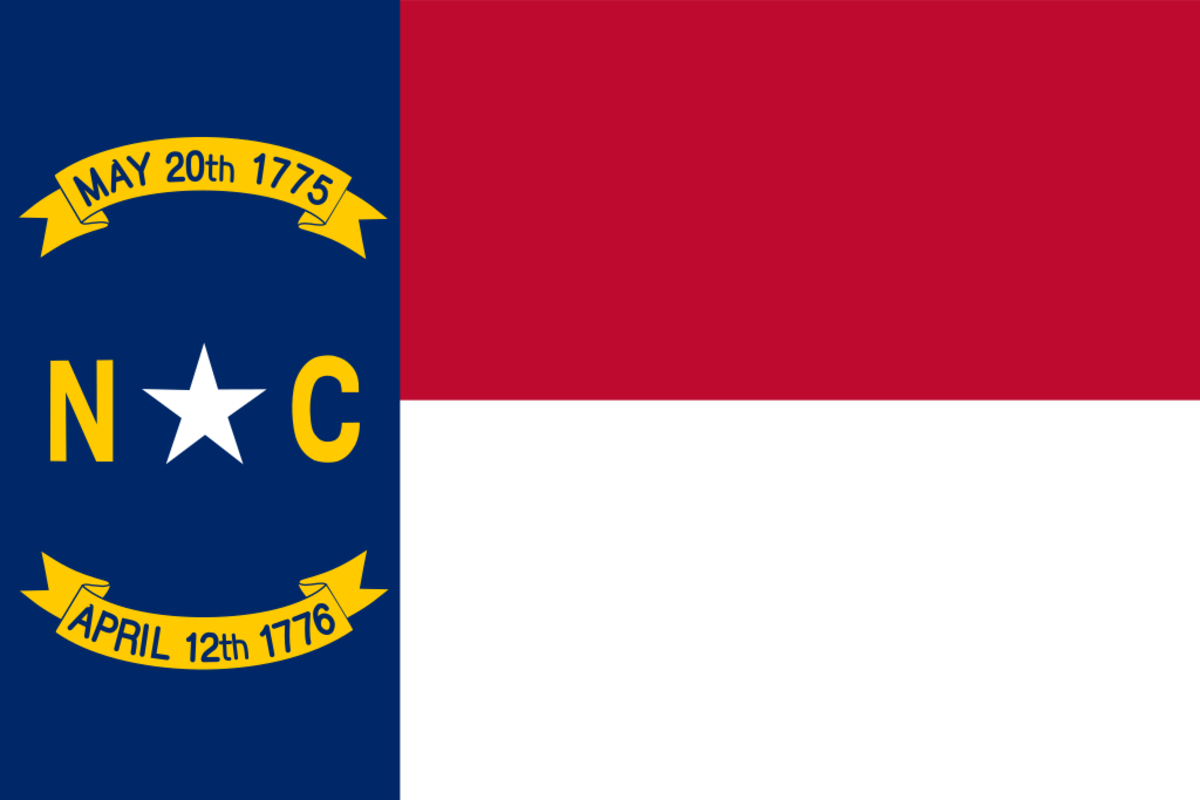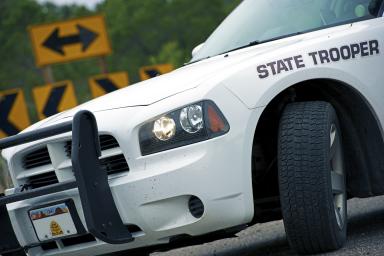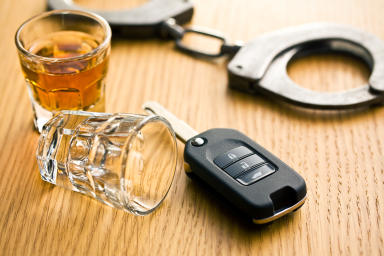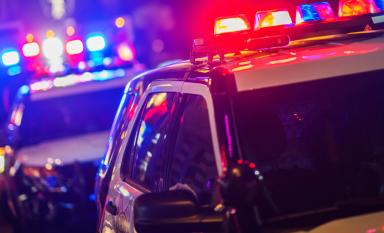North Carolina DWI Laws

North Carolina takes cases of impaired driving seriously. This is evident in how its laws evolved to deter individuals from driving while intoxicated. For instance, the state raised the legal age for drinking, enhanced dram shop and host liability laws, and disallowed plea bargaining.
All these efforts and legislative changes not only resulted in a complex penalty system that severely punishes intoxicated drivers and mitigates drunk driving; they also led to stricter rules for impaired drivers who are underage, school bus drivers, child care drivers, and habitual DWI offenders.
However, the stringent legislation has not eliminated drunk driving in the Tar Heel State. In fact, it logged 37,960 impaired driving charges in 2021. Thus, it is crucial to be aware of North Carolina’s DWI laws, as they can protect you in case you get involved in a drunk driving accident. Fortunately, this article will cover several essential laws and other relevant information.
DWI vs. DUI in North Carolina
Most people are familiar with the term driving under the influence or DUI. However, there are other labels to refer to the act of driving while under the effects of alcohol or drugs. In North Carolina, the preferred term is driving while impaired, which can be shortened to DWI.
This might confuse some readers because, in some states, a DWI is distinct from and a graver offense compared to a DUI. Indeed, that was the case before with North Carolina. But as of 2023, it must be clarified that there is only a DWI charge in the Tar Heel State, which is more or less equivalent to most other states' DUI.
Nevertheless, it's best to consult a lawyer if you somehow incur charges under differing terms across states. They can advise you on whether your DUI or DWI in another state will impact the sentences you'll have to face for a DWI in North Carolina.
North Carolina’s DWI Definitions
A person is charged with DWI in North Carolina if they meet any of the following conditions while driving in a public vehicular area:
Apparently impaired or under the influence.
Having a blood alcohol concentration of at least 0.08%.
Having a controlled substance or metabolite in their system.
However, one must know that the term "driver" is synonymous with "operator" in the state's general statutes. The definition of an operator is an individual who has actual physical control of a moving vehicle or one with a running engine.
Thus, it may not be necessary for you and your car to be up and running for a DUI arrest to be valid. Indeed, the arresting officers do not need to have seen you drive your vehicle to make an arrest.
For example, a man was arrested in 2022 in North Carolina and tried to appeal his charge, claiming that the officers who arrested him did not directly see him drive. However, there was sufficient circumstantial evidence for the case to progress and for the appeal to be rejected.
Another example is the general statute that states that a commercial driver can be arrested for DWI if seen with an alcoholic drink — whether open or closed — in the passenger seat.
Exemptions to Standard Alcohol Limit
The definition of impaired driving states that a person violates the law if they have at least a 0.08% BAC. However, the maximum threshold is lower for other categories of drivers. North Carolina has a zero tolerance policy for impaired drivers who are also any of the following:
Below 21 years old.
Commercial driver
School bus driver.
Child care driver.
Ambulance operator.
Firefighting vehicle driver.
Emergency medical services vehicle driver.
An example of this law in action is when a 17-year-old driver was arrested in April 2023 for DWI despite having a BAC of only 0.02%. This is because the BAC limit for underage drivers, just like school bus drivers, is 0.0%.
Meanwhile, commercial drivers should not have a BAC that reaches 0.04% if they do not want to face more stringent penalties than regular DWI violators.
What Are the Penalties for a DWI in North Carolina?
Penalties for a DWI in North Carolina include jail time, license suspension or revocation, and hefty fines. However, the gravity of a violator’s penalties depends on their specific circumstances. Compared to other states, the penalty system for DWI in North Carolina also takes into account aggravating and mitigating factors.
North Carolina DWI Penalties Based on Aggravating and Mitigating Factors
The pieces of evidence that may be presented during a hearing for a DWI charge in North Carolina can be classified into any of the following categories:
Grossly aggravating factors: These include previous DWI convictions within the past seven years and serious injuries resulting from the DWI. Other grossly aggravating factors are driving with a license revoked by a prior DWI charge and driving with underage or physically disabled passengers.
Aggravating factors: These include traffic violations, demerit points, speeding, reckless or dangerous driving, and a BAC of at least 0.15%. Other aggravating factors are being involved in a vehicular crash, passing a school bus, driving with a revoked license, and attempting to evade or successfully escape the police.
Mitigating factors: These include a BAC equal to or below 0.09%, clean records, mental health screening, sobriety monitoring, and proof that the drugs that impaired the driver were prescribed.
To sum it up, a person arrested for a DWI would likely prefer to have mitigating factors show up in their case rather than grossly aggravating or aggravating factors. This is because having mitigating factors may influence the judge to award a less severe punishment, while having the rest is sure to result in graver penalties.
Once a person has been convicted of DWI, their punishments are determined based on the state’s penalty system:
In line with these details, a person arrested for a DWI charge may be interested in knowing if their charge can be reduced or suspended. In a nutshell, reducing a DWI charge in the state is not impossible. However, doing so is typically difficult, and one may be subject to stringent and specific conditions.
One of the things a violator can do with their lawyer to lessen the severity of their punishment is to determine if there are any mitigating factors related to their offense. Those charged with multiple crimes may also aim for a dismissal of their DWI. However, it is rare for such a request to be granted, and an offender will still have to face the penalties for their other crimes.
Moreover, an offending driver must conduct community service to suspend a Level III to Level V sentence. The minimum duration of service is equivalent to the minimum jail time penalty for the respective sentence.
Requesting suspension for Level II to Aggravated Level I sentences is even more challenging. An Aggravated Level I imprisonment sentence may only be suspended if the offender’s special probation includes imprisonment for at least 120 days. There may be other conditions, such as alcohol monitoring.
Vehicle Impoundment
The government may seize a driver's vehicle if their license was suspended due to a previous DWI. Impounding may also be done if a driver did not have a valid license and was not covered by an insurance policy at the time of the arrest. Depending on the arrest conditions and the trial results, they may or may not get their vehicle back.
License Suspension
All drivers convicted of DWI in North Carolina will also have their licenses suspended by the state's DMV. The duration depends on the number of offenses one has committed:
Once the period has lapsed, a violator can have their license restored after paying specific fees.
Other offenders whose licenses may be suspended indefinitely are mentally incompetent individuals, those with an alcohol problem, and chronic drug users.
Zero Tolerance Penalties
Commercial drivers who violate the state’s zero tolerance policy are subject to a different set of license-related penalties:
10-day disqualification for first-time DWI offenders.
Permanent license revocation for second-time DWI offenders.
Drivers of school buses and child care vehicles may face immediate arrest. Meanwhile, underage drivers who flout the policy can be convicted of both DWI and underage DWI. The penalties implemented depend on which charge is more severe. They may face 60 days of jail time, a $1,000 fine, and an immediate 30-day pre-trial followed by a one-year license revocation.
Penalties for Violating the Implied Consent Law
The implied consent law in North Carolina requires drivers to undergo a blood, breath, or urine test to determine whether they are driving under the influence. Drivers who refuse any of these tests will have their licenses revoked for at least a year.
This suspension period is still separate from a license revocation due to a DWI. Thus, even if a violator is not guilty of a DWI, they may still have their license suspended for refusing a test. It also means that the suspension due to the implied consent offense will be added to the suspension due to the DWI.
It's essential to note that a person who was supervising or instructing a beginner driver and was caught doing so while impaired will also face the penalties of an implied consent offense, even if they submitted to the tests.
North Carolina Dram Shop Law
Most states throughout the country have established dram shop laws to make bars and other alcohol-selling establishments — also known as dram shops — liable for the harm caused by an impaired driver to whom they sold liquor.
In North Carolina, dram shops have liability only when they sell to a person who is underage or visibly intoxicated. It must be noted that it is difficult to make an establishment liable if the convicted driver is an adult versus a minor. However, it is not impossible; in one case, a restaurant and bar in South Charlotte was asked to pay $1.7 million after serving alcohol to a customer who then crashed into a young couple.
Aside from dram shop laws, social host liability laws apply in the state. They are similar to dram shop laws in that a party or social gathering host may be held responsible for the damages caused by a guest’s impaired driving after being served too much alcohol.
How Much Can Someone Sue for a Drunk Driving Injury in North Carolina?
When someone sues for a drunk driving injury, they demand compensation for economic (or monetary) and non-economic (or non-monetary) damages, such as medical expenses, lost income, pain and suffering, and disability. Since there is no limit to the amount of damages a victim can obtain, it is up to the plaintiff and their lawyer to decide how much value they can pursue.
In addition to economic and non-economic damages, a victim may receive punitive damages from the defendant. These are awarded by the court to punish offenders and deter them or other community members from committing DWI again.
With that said, there is a limit to the punitive damages a plaintiff may receive — $250,000 or three times the compensatory damages, whichever is greater.
The Statute of Limitations in North Carolina
Criminal DWI cases in North Carolina classified as misdemeanors follow the two-year statute of limitations. Felonies, on the other hand, can be prosecuted in a criminal court at any time, no matter how long ago they happened.
Meanwhile, if you are a victim of a car accident caused by a DWI, you may pursue a personal injury or a dram shop liability lawsuit. The deadline for pursuing legal action for the former is three years and only one year for the latter.
Exemptions may apply in some instances, like if the victim was a minor, mentally indisposed, or defined by law as incompetent. However, once those conditions no longer apply — such as when the victim is no longer underage — the clock will start running and they will need to file a case as soon as possible.
Resources for Folks Injured by an Impaired Driver in North Carolina
Mothers Against Drunk Driving - North Carolina
Mothers Against Drunk Driving is an international organization that strives to eradicate instances of impaired driving. Established in the state of California in 1980, it has since expanded across the U.S., Canada, and Brazil. People based in North Carolina can seek help through the group’s local chapter. To live up to its advocacy, it offers free services to victims of impaired driving. These include emotional support, referrals, the provision of statements, and crime victim compensation. Its Raleigh-based office may be reached through its hotline: 877-MADD-HELP or 1-877-623-3435.
LawHelpNC.org
LawHelpNC.org is a collaborative endeavor between various legal organizations in North Carolina, including the state's Legal Aid, the North Carolina Equal Justice Alliance, and the Bar Association Foundation.
The site covers many legal topics. For DWI victims, its most relevant resource is its legal directory and the Get Help from a Lawyer service. This program helps victims find a legal professional who can assist them in pursuing a civil DWI lawsuit.
NC Free Legal Help
North Carolina DWI lawsuits can be an expensive pursuit for the victims involved. To help reduce the legal costs associated with a case, the North Carolina Advocates for Justice established NC Free Legal Help. It can connect individuals to over 500 lawyers who can provide relevant but limited legal assistance.
A consultation with a lawyer lasts only 10 minutes, but it can be invaluable to those still unsure how to proceed with their case and do not have the money to spare for preliminary consultations.
Expertise.com StaffAuthor
Step into the world of Expertise.com, your go-to hub for credible insights. We don't take accuracy lightly around here. Our squad of expert reviewers, each a maestro in their field, has given the green light to every single article you'll find. From rigorous fact-checking to meticulous evaluations of service providers, we've got it all covered. So feel free to dive in and explore. The information you'll uncover has been stamped with the seal of approval by our top-notch experts.




